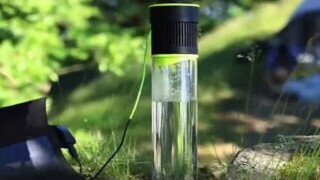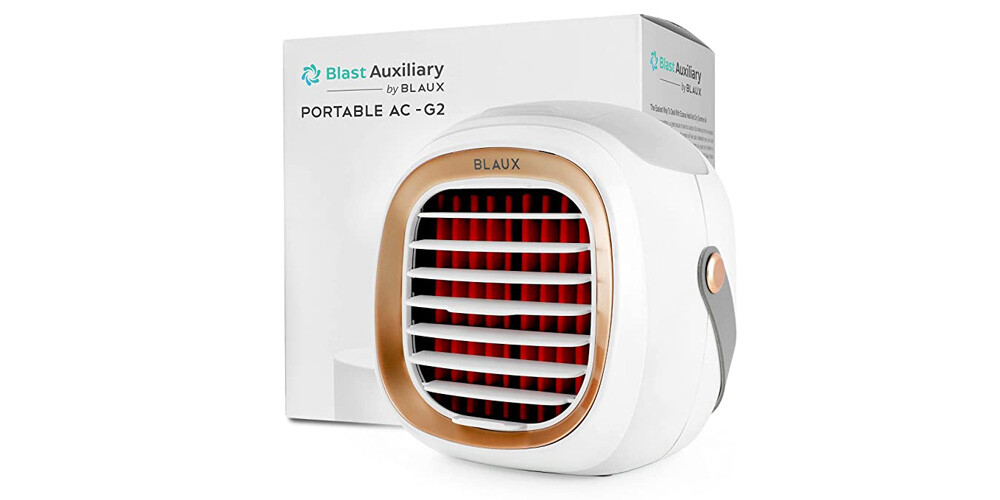4 'Eco-Friendly' Gadgets That Are Total Scams

Saving the planet one eco-friendly invention at a time is a noble goal. People much smarter than all of us work tirelessly each day to try and ensure that we have at least a little bit of a planet to inhabit in the future. But those smart people seem to be vastly outnumbered by fraudsters out there with bafflingly dumb ideas that are just pseudo-science.
Solar Panel Roads Are Bad Solar Panels And Bad Roads
Nowadays, people are slapping solar panels on everything, from houses to cars, and it’s easy to see why. Solar energy alternatives have become cheap enough to usher in a sun-based utopia. But fraud solar energy initiatives have cropped up too, and it can be a bit hard to separate the chaff from the wheat. One invention takes the cake in solar ridiculousness, and nobody should buy into it. We're talking about solar panel roads.
Don't Miss
The premise sounds delightful: make roads out of solar panels instead of tarmac, producing a lot of much needed energy for the world. The problem with their whole ‘smart roads’ idea is that it doesn’t actually work in reality. Flat low roads are simply one of the worst places to stick solar panels. When we set up panels properly, we generally tilt them to get the optimal amount of energy produced from sunlight. So solar roads don't produce a lot of energy. Even a bit of shade can majorly reduce power generation and traffic provides a ton of shade. Solar panel roads don't even capture enough energy to take care of their own proposed functions (which include melting snow), let alone enough surplus to power the world.

via Wiki Commons
We've actually touched on these problems before. But as the years go by, our objections aren't just theoretical because we also get to see how things work out for prototype solar roads. Turns out they quickly break down from all of the constant wear and tear going on. That's not a problem with normal roads because asphalt is cheaper than dirt and 100% recycled but is a huge deal when you're paving with custom solar panels. The idea of spending $56 trillion to cover the nation's highways in solar panels never made much sense, but if we're supposed to do that anew every three years, that's just a whole new level of dumb and impossible.
For now, regular old roads and regular old solar farms work just as well, coming with more benefits and less downsides than combining both. You don't always have to mix things. Most of us figure that out as a child the first time we try to make tuna ice cream.
Detergent-Less CrystalWash Is Just A Bunch Of Balls
Doing laundry can be a real pain. Not only is it time-consuming and water-hungry, but detergents often have harmful chemicals that pollute the environment. Cue a bunch of "eco-friendly" alternatives to make you feel less dirty about removing the stank from your underwear. CrystalWash 2.0 is one such scam. Having run a successful Kickstarter campaign ending with $268,368 raised, Crystal Wash 2.0 aims to remove detergent from the laundry process entirely with weird gray balls that look like something straight out of Minecraft.

Each ball contains Bio Ceramics made from minerals with antibacterial properties, says the company, and is supposed to produce cleaning elements by combining ceramic with water. Every 30 days, you just put the balls in sunlight for a little while, and they'll be good to go again.
The problem is that this isn’t at all how chemistry works, or how anything works. If you wash with these ceramic balls instead of detergent, dirty clothes will get cleaned, but that's just because hot water cleans clothes. The balls themselves do nothing. Your clothes will still come out cleaner, however, if you use detergent, because detergent actually does do something.
Heck, the FTC issued warnings about similar products all the way back in the '90s, and they even filed lawsuits against a few companies that argued these ridiculous claims. For now, you’ll have to stick with your overpriced Tide detergent.
Portable A/C Units Aren’t Cool
If you thought this year’s summer was unusually hot, you’re not alone. As climate change gets worse, temperatures will rise, and we'll have to arm ourselves to fight over the remaining reserves of tuna ice cream. Summers will get unbearably hot, ramping up the need for air conditioning in many places. So naturally, the market for A/C units has widened considerably, opening a huge gap for opportunists to squeeze in and make a quick buck off fraudulent products.
You might’ve seen ads on YouTube or around the web for small portable A/C units that sit on top of your desk and keep you cool all day long. The problem is, these are basically glorified fans at best, and cheap, non-functioning humidifiers at worse. These units, like swamp coolers, work by evaporating water, and evaporating water does absorb heat, yeah. But the devices don't cool very much, and they work worst when it's humid, which is when you want an A/C most.

Blaux
Which cools you, but yeah, that's cause of the ice not the device.
The company Blaux runs incredibly misleading ads for their own $88 Portable A/C line, which plugs in via USB and is supposed to run like a regular A/C unit that costs hundreds of dollars more. It doesn’t cool anywhere as well as a real A/C, which pressurizes refrigerant gases to pump the heat right out of your home. And if you really do need a portable device (i.e. if you're outdoors), these devices are totally useless.
You really need to point them right at your face to feel anything … in which case you might as well save yourself the trouble and a couple of bucks and just buy a regular fan.
Self-Filling Water Bottles Aren't Very Fulfilling
A lot of the world's going through a very real water crisis right now, and over 2.7 billion people don’t have good drinking water. Intelligent people work endlessly on solutions to this problem, while others take advantage of the situation to create scam artist bullshit like self-filling water bottles.
The company Fontus claims their water bottle captures moisture from the air and condenses it into drinking water over time, all without any user input at all. Now, the concept is not necessarily new, as atmospheric water generators basically do the same thing. However, the key difference is that these are huge pieces of heavy machinery that require a significant amount of energy to extract the water, a task a lowly water bottle isn’t at all equipped to do. Plus, these generators need to be in extremely humid climates to even work properly.

Fontus
Crowdfunded water bottles don't work when it's dry.
Fontus’s bottle gets energy from solar panels, but it’s such a laughably small amount of energy that it’ll never actually produce the 0.5 liters each hour that ads claim it will. Even the designers themselves said they were only able to produce about 2 ounces of water every 24 hours. If it sounds too good to be true, it probably is. That's the golden rule of crowdfunded bullshit.
Top image: Fontus
